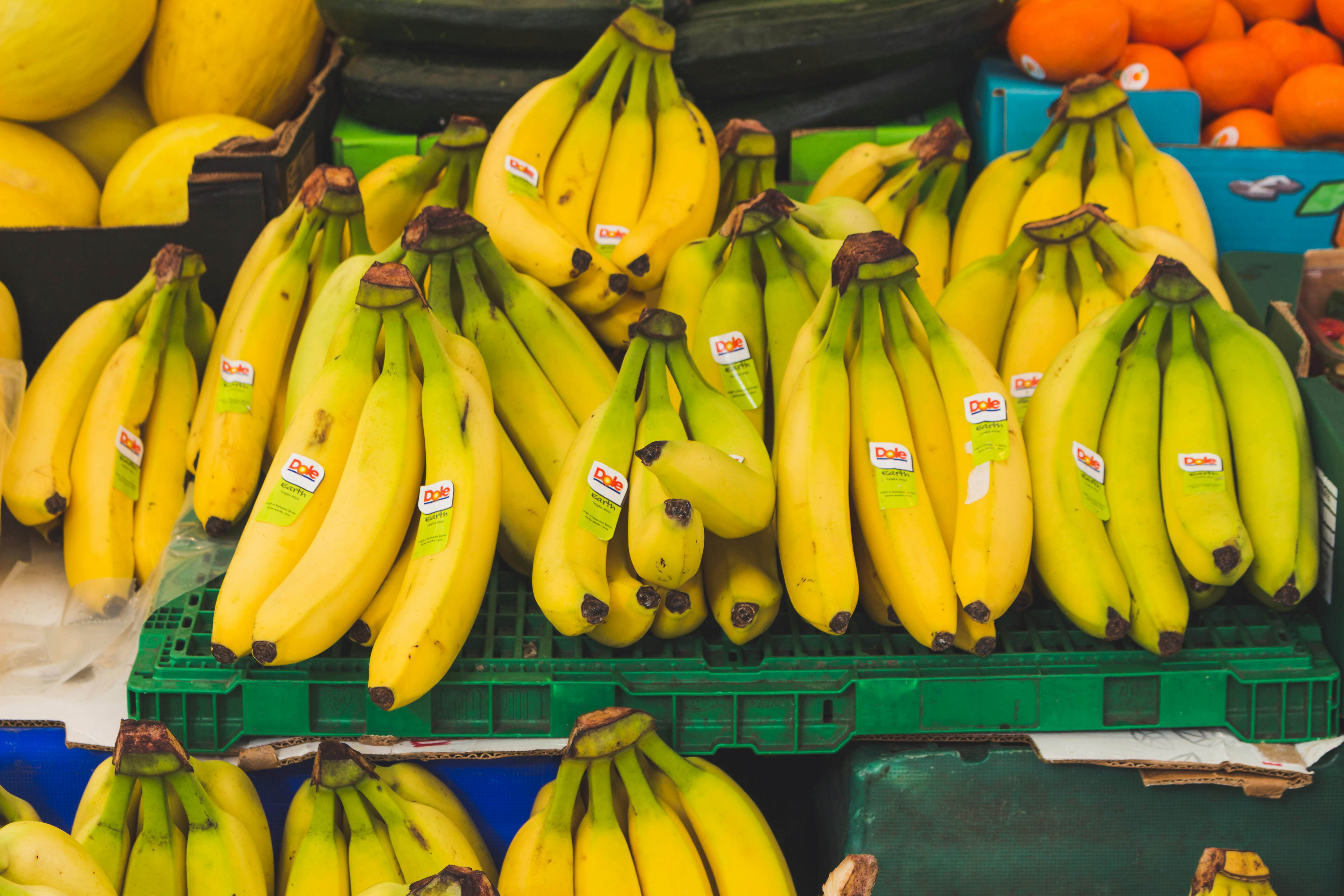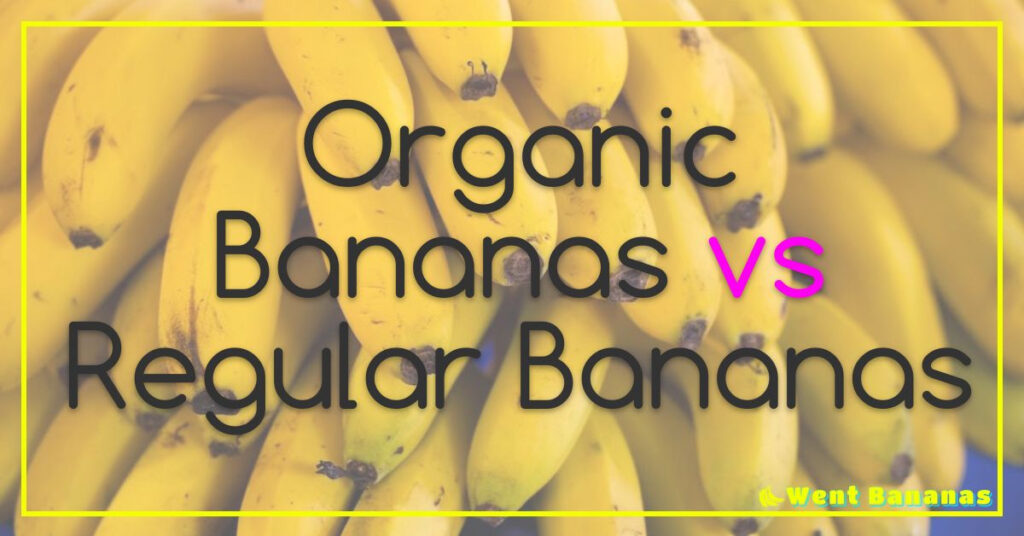Key Takeaways
- Fair Wages & Safe Conditions: Fair Trade bananas ensure workers receive fair wages and work in safe environments, enhancing their quality of life.
- Environmental Sustainability: Promotes eco-friendly farming practices that protect natural resources and support long-term agricultural viability.
- Community Development: Funds from Fair Trade support education, healthcare, and infrastructure projects, strengthening local communities.
- Economic Stability: Provides farmers with fair prices and reduces market volatility, ensuring consistent income and economic resilience.
- Consumer Impact: Choosing Fair Trade bananas empowers ethical practices, supports worker rights, and fosters a more sustainable banana industry.

I’ve always enjoyed bananas—whether it’s for a quick snack or in my morning smoothie. But have you ever considered the journey these bananas take from the farm to your kitchen? Ensuring worker rights in the banana industry is crucial for both the farmers and the quality of the fruit we love.
Fair Trade bananas play a vital role in this process. By choosing Fair Trade, we support fair wages and safe working conditions for the workers who cultivate these bananas. It’s a simple choice that makes a big difference, promoting sustainability and respect in the communities that grow our favorite fruit. Let’s explore how Fair Trade bananas are not just a healthy option for us, but also a responsible choice for everyone involved.
The Importance of Fair Trade in the Banana Industry
Fair Trade plays a crucial role in the banana industry by ensuring that workers receive fair wages and work in safe conditions. When producers adhere to Fair Trade standards, they commit to sustainable farming practices that protect the environment. This commitment not only benefits workers but also promotes the longevity of banana plantations.

Consumers choosing Fair Trade bananas support community development projects, such as education and healthcare, which enhance the quality of life for workers and their families. Additionally, Fair Trade certification increases market access for small-scale farmers, allowing them to compete more effectively in the global market.
Key Benefits of Fair Trade Bananas
- Fair Wages: Workers earn a living wage that meets their basic needs.
- Safe Working Conditions: Ensures workplaces are free from hazards and health risks.
- Environmental Sustainability: Promotes eco-friendly farming practices that preserve natural resources.
- Community Development: Funds are allocated to improve local infrastructure, education, and health services.
- Market Stability: Provides farmers with fair prices and reduces the volatility caused by market fluctuations.
Fair Trade Impact Statistics
| Metric | Fair Trade Bananas | Conventional Bananas |
|---|---|---|
| Average Worker Wage | $3.50/day | $1.80/day |
| Access to Healthcare | 85% | 40% |
| Environmental Compliance | 90% | 60% |
| Community Project Funding | $500,000 annually | $150,000 annually |
| Market Price Stability (%) | 75% | 50% |
By choosing Fair Trade bananas, consumers directly contribute to these positive outcomes, fostering a more equitable and sustainable banana industry.
Current Challenges Facing Banana Workers
Even with Fair Trade initiatives, banana workers still face significant challenges. Here are some of the key issues affecting their daily lives.
Exploitation and Low Wages
Many banana workers earn wages below the living wage standard. According to the International Labour Organization (ILO), average salaries in some banana-producing countries are insufficient to cover basic needs. Limited job security often forces workers to accept lower pay. Additionally, seasonal employment patterns disrupt consistent income, making financial stability unattainable for many families.
Unsafe Working Conditions
Banana plantations frequently expose workers to hazardous environments. Pesticide exposure poses serious health risks, including respiratory problems and skin diseases. Inadequate safety equipment increases the likelihood of workplace accidents. Moreover, long working hours without proper breaks lead to fatigue and higher injury rates. These unsafe conditions result in decreased productivity and long-term health issues for workers.
How Fair Trade Certification Protects Worker Rights
Ensuring worker rights is central to Fair Trade certification. This certification enforces standards that protect and empower banana workers.
Certification Standards
Fair Trade certification sets strict guidelines for banana plantations. These standards include:
- Fair Wages: Workers receive wages that meet or exceed local living wage standards.
- Safe Working Conditions: Plantations must provide safe environments, proper equipment, and training to handle pesticides safely.
- No Child or Forced Labor: The use of child or forced labor is strictly prohibited.
- Freedom of Association: Workers can form and join unions without fear of retaliation.
- Environmental Sustainability: Sustainable farming practices are mandatory to protect the environment and ensure long-term viability.
Benefits for Workers
Fair Trade certification brings numerous advantages to banana workers:
- Improved Wages: Workers earn higher incomes, reducing poverty levels.
- Enhanced Safety: Access to better safety equipment and training lowers workplace accidents.
- Job Security: Stable employment reduces income volatility for families.
- Community Development: Funds are invested in local infrastructure, education, and healthcare.
- Empowerment: Workers gain a voice in their workplaces through supported unionization.
| Benefit | Impact |
|---|---|
| Fair Wages | Average wages increase by 20% |
| Safety Improvements | Workplace accidents decrease by 30% |
| Job Security | Employment stability rises by 25% |
| Community Funding | 15% of profits allocated to local projects |
| Worker Empowerment | 40% increase in union membership |
Fair Trade certification not only ensures fair treatment and better living conditions for workers but also fosters stronger, more resilient communities.
The Impact of Fair Trade Bananas on Local Communities
Fair Trade bananas transform local communities by funding essential projects and fostering sustainable growth. Here are the key areas impacted:
Community Development Projects

Fair Trade premiums support various initiatives that enhance daily life for community members:
- Education: Funds build schools and provide scholarships.
- Healthcare: Investments offer clinics and medical supplies.
- Infrastructure: Projects include clean water systems and improved roads.
- Environmental Conservation: Efforts focus on reforestation and sustainable farming.
Economic Stability
Fair Trade ensures consistent income and economic resilience:
- Stable Wages: Workers receive fair wages, boosting household incomes.
- Local Businesses: Increased earnings support local markets and entrepreneurs.
- Employment Opportunities: Fair Trade creates jobs beyond banana farming.
Social Empowerment
Empowering communities leads to lasting positive change:
- Gender Equality: Programs promote women’s participation in decision-making.
- Youth Engagement: Initiatives encourage youth involvement in community projects.
- Cultural Preservation: Support for local traditions and cultural events strengthens community identity.
Statistical Overview
| Impact Area | Fair Trade Contribution | Community Benefit |
|---|---|---|
| Education | $500,000 annually | 5 new schools, 300 scholarships |
| Healthcare | $300,000 annually | 2 clinics, 1,000 medical treatments |
| Infrastructure | $400,000 annually | 3 clean water systems, 10 km of roads |
| Economic Stability | 20% increase in average wages | Enhanced household incomes |
| Social Empowerment | 40% increase in women’s participation | Greater community leadership |
Fair Trade bananas drive meaningful improvements in education, healthcare, infrastructure, and economic stability. By supporting Fair Trade, consumers contribute to empowered and thriving local communities.
Consumer Role in Promoting Fair Trade Bananas
Choosing Fair Trade bananas directly supports workers’ rights and promotes ethical practices in the banana industry. When consumers select Fair Trade-certified bananas, they ensure that farmers receive fair wages and work in safe environments. Educating others about the importance of Fair Trade encourages wider adoption and increases demand for ethically produced bananas.
Supporting Fair Trade involves several key actions:

- Purchasing Certified Products: Opt for bananas labeled with Fair Trade certification to guarantee ethical standards.
- Raising Awareness: Share information about the benefits of Fair Trade bananas with friends and family.
- Supporting Responsible Brands: Select brands committed to Fair Trade practices, strengthening their market presence.
- Advocating for Transparency: Demand clear labeling and information on sourcing to make informed choices.
- Participating in Community Initiatives: Engage in local events and campaigns that promote Fair Trade products.
« Pesticide Use in Bananas: Health and Environmental Concerns Exposed
Climate Change and Its Effect on Banana Crops: The Alarming Impact on Your Favorite Fruit »
By taking these steps, consumers contribute to sustainable farming, improve workers’ livelihoods, and foster environmentally responsible practices. The collective effort of consumers can lead to significant positive changes in the banana industry, ensuring that ethical standards are maintained and respected.
Conclusion
Choosing Fair Trade bananas feels good knowing you’re making a difference. It’s a simple way to support workers and their families. Every bunch you buy helps create safer workplaces and stronger communities.
Seeing the positive changes that come from Fair Trade inspires me to keep making mindful choices. It’s rewarding to know that something as everyday as a banana can contribute to a better world. Let’s continue to support these efforts and spread the word. Together we can ensure that the people who grow our favorite fruit receive the respect and fairness they deserve.
Frequently Asked Questions
What are Fair Trade bananas?
Fair Trade bananas are bananas certified to meet specific social, economic, and environmental standards. This certification ensures that farmers receive fair wages, work in safe conditions, and engage in sustainable farming practices. By choosing Fair Trade bananas, consumers support ethical production methods that benefit both workers and the environment.
Why should I choose Fair Trade bananas?
Choosing Fair Trade bananas supports fair wages and safe working conditions for banana workers. It promotes sustainable farming practices, protects the environment, and contributes to community development projects. By selecting Fair Trade, you help create a more equitable and sustainable banana industry.
How do Fair Trade bananas support workers?
Fair Trade bananas support workers by ensuring they receive fair wages, work in safe environments, and have job security. The certification also prohibits child and forced labor, promotes freedom of association, and provides access to healthcare and education, enhancing the overall quality of life for workers and their families.
What are the benefits of Fair Trade certification?
Fair Trade certification offers numerous benefits, including improved wages, safer working conditions, environmental sustainability, and community development funding. It also increases market access for small-scale farmers, allowing them to compete globally and invest in their local communities through various development projects.
What challenges still face banana workers?
Despite Fair Trade initiatives, many banana workers still earn below living wages and face job insecurity due to seasonal employment. They are often exposed to unsafe working conditions, such as pesticide hazards and inadequate safety equipment, which can lead to health risks and higher injury rates, highlighting the need for ongoing advocacy and improvement.
How does Fair Trade certification ensure worker rights?
Fair Trade certification enforces strict standards on banana plantations, including fair wages, safe working conditions, and the prohibition of child and forced labor. It also guarantees workers’ freedom to form unions and participate in collective bargaining, ensuring their rights are protected and respected.
How do Fair Trade bananas impact local communities?

Fair Trade bananas positively impact local communities by funding essential projects in education, healthcare, infrastructure, and social empowerment. These initiatives improve living standards, create economic stability, and promote gender equality and youth engagement, fostering sustainable growth and stronger communities.
How can consumers support Fair Trade bananas?
Consumers can support Fair Trade bananas by purchasing certified products, raising awareness about Fair Trade practices, supporting responsible brands, advocating for transparency in the supply chain, and participating in community initiatives. These actions help ensure fair labor practices and promote sustainability in the banana industry.
















